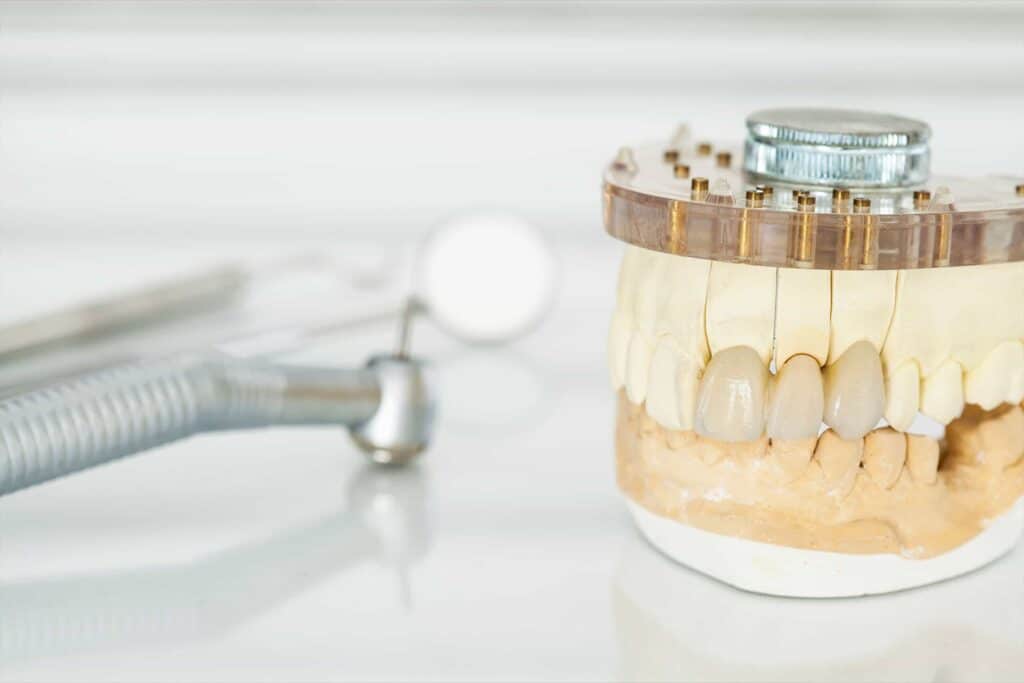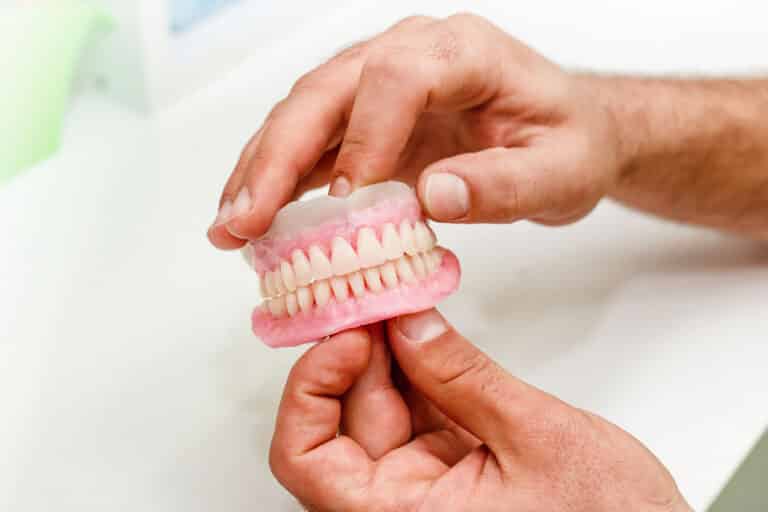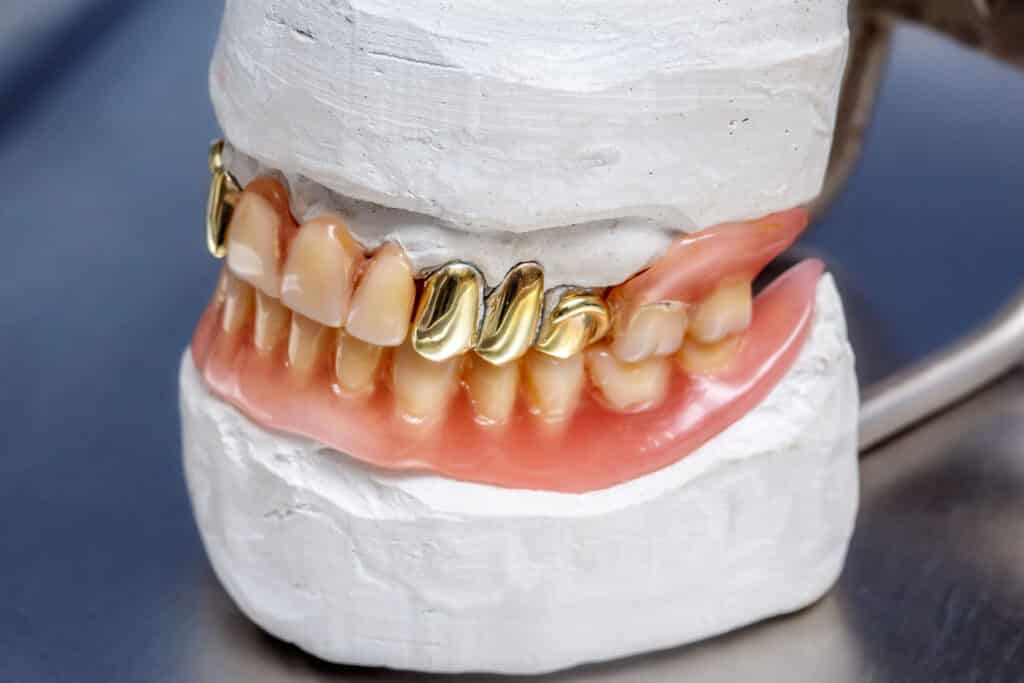Mouth ulcers are small sores that form in the mouth, typically on the gums, inner cheeks, lips, or the roof of the mouth (palate). While mouth ulcers are usually not a cause for concern, they can be uncomfortable for the afflicted.
You may hear mouth ulcers called a “canker sore,” a common type of ulcer. Although not the only one, canker sores, also known as aphthous ulcers, are usually red or white, tend to go away independently, and are not contagious. Though not serious, mouth ulcers are painful, causing many to seek professional and at-home treatments.
What Causes Mouth Ulcers?
The cause will vary depending on what type of ulcer it is. For instance, it’s common for people to confuse a cold sore and a canker sore, but they’re different. A virus causes cold sores, while canker sores have various factors contributing to their development. Mouth ulcers in general, have many causes and risk factors, some of which include:
- Biting your cheek or tongue accidentally
- A vitamin deficiency
- Minor tissue injuries or trauma, such as from a sharp tooth
- An improper diet
- Hormonal changes
- Bacterial, fungal, or viral infections such as the herpes simplex virus. The herpes virus that causes cold sores differs from the one that causes genital herpes.
- Stress
- Poor quality sleep
- A weakened immune system, for instance, those undergoing cancer treatment such as chemotherapy or radiation therapy
- Chemical or thermal burns
- Consuming too many acidic or spicy foods
- Allergic reactions
- Genetics
As you can see, there are many causes of mouth ulcers. Knowing the causes will better prepare you for how to prevent mouth ulcers. However, we currently do not know the actual cause of some types of mouth ulcers. For instance, the cause of the common canker sore is presently unknown.
It is unlikely at this point that we will discover the root cause of canker sores. This is because a canker sore will resolve by itself and doesn’t appear to be associated with more severe conditions such as mouth cancer. They are also not visible, just uncomfortable to touch. Due to this, there is no financial incentive to investigate the cause or develop treatment.
Most mouth ulcers will go away by themselves within a short period of time. A good general rule of thumb is to see a doctor if you have a mouth ulcer that doesn’t go away within two weeks by itself.
How Do You Get Rid of Mouth Ulcers?
Most patients find that their mouth ulcer does not require treatment. However, for those who get mouth ulcers often, life can get pretty miserable without something to reduce the painful sores and speed up healing time.
Oral health through good oral hygiene is also essential in preventing mouth ulcers. While it may not necessarily eliminate them, it can help reduce the frequency with which they appear.
Addressing the risk factors mentioned previously may help get rid of mouth ulcers and prevent their formation. Eating nutritious foods, getting sufficient sleep and rest, maintaining good oral health, and avoiding spicy or acidic foods are a few things that may help. Of course, knowing the type of ulcer greatly helps reduce its frequency.
In addition, your doctor or dentist can provide you with treatments, and these could include:
A Topical Ointment or Paste
Topical ointments can help reduce the pain while waiting for the ulcer to heal naturally. These minor ulcers may be uncomfortable if they are on a part of the mouth that is frequently touched. These parts include; parts of the tongue, lips, or cheeks. The topical ointments numb up the area to reduce the pain. However, the effects are typically short.
If there is an ulcer or lesion on the outside of the mouth, it may be a cold sore. If this is the case, topical ointments can help heal the lesions faster. Be sure to apply the cold sore ointment within a couple of days as it becomes significantly less effective after a couple of days.
A Mouthwash That Reduces Swelling and Pain
A mouthwash is typically a better option to reduce the symptoms that may develop from ulcers. Depending on the mouthwash formulation, it can keep the mouth clean or make the ulcer more comfortable. One common mouthwash is called magic mouthwash.
What is Magic Mouthwash?
Magic mouthwash is a combination of multiple drugs and differs from over-the-counter mouthwashes. It contains a combination of a few medicines which include:
- Diphenhydramine. Also known as Benadryl, this is an antihistamine aimed to reduce histamine release, which happens during an allergic reaction.
- Viscous lidocaine. Lidocaine is an anesthetic commonly used in dental and medical treatment. Lidocaine is a very widely used local anesthetic for dental procedures. Its aim is to numb the painful areas and make the ulcer more comfortable.
- Magnesium hydroxide or aluminum hydroxide. These are similar drugs that have a good antacid effect. They help reduce symptoms in many ulcers.
- Nystatin. This antifungal drug aims to resolve any symptoms of a fungal infection.
- Corticosteroids. This class of drugs aims to reduce inflammation and its effects on the immune system to help relieve symptoms.
What is Sodium Lauryl Sulfate?
Sodium lauryl sulfate, or SLS, is a surfactant commonly used in many dentifrices, also known as toothpaste. Sodium lauryl sulfate is responsible for the foaming action in toothpaste. SLS may be linked to aphthous ulcers or canker sores. If you frequently get aphthous ulcers, avoid using dental toothpaste containing sodium lauryl sulfate to see if it helps.
Can You Treat Mouth Ulcers Naturally?
Natural remedies for mouth ulcers can work well if you’re not constantly experiencing them or have one that isn’t causing moderate to severe pain. If the natural route interests you, try a few options. Remember that depending on the type of mouth ulcer, some treatments may worsen the ulcer. It is always best to diagnose the ulcer first and then treat it. Here are a few natural remedies for mouth ulcers:
- A baking soda paste
- Using a cotton swab to place milk of magnesia on the ulcer
- Saltwater rinses
- Applying ice
- Echinacea tea
- Proper nutrition and diet
You may also try supplements to help with your mouth ulcers. If you’re deficient in specific vitamins, such as B9, B12, zinc, or iron, mouth ulcers can appear inside the mouth frequently. You’ll need blood work and your doctor’s clearance first to know what supplements you need.
It can take several days to three weeks to heal a mouth ulcer successfully. Healing times can depend on many things, including location, treatment type, and cause. Those who heal slower, such as diabetics, may need up to three weeks to heal.
What Does a Mouth Ulcer Look Like?
Most people can tell they have a mouth ulcer by its appearance. Mouth ulcers have a wide variety of appearances, often red, yellow, or white, may have a raised or indented appearance, and can be small or large. They usually appear on soft tissue such as the tongue, lips, gums, palate, and inner cheeks. However, some ulcers can also appear on the outside of the mouth, with the most common being a cold sore.
Contact your dentist immediately if you experience a mouth ulcer that won’t disappear within two weeks. While rare, your doctor will want to rule out more serious conditions such as mouth cancer. Getting the correct diagnosis before proceeding with mouth ulcer treatments is crucial.
Are Mouth Ulcers Contagious?
Some mouth ulcers are contagious, while others are not, even when an underlying infection causes them. For instance, canker sores are not contagious. However cold sores are. So it’s essential to pinpoint the cause of your mouth ulcers, primarily if they’re recurring.
If you are concerned about giving or contracting an ulcer, avoid contact or sharing items such as cups with someone with oral lesions. Also, avoid sharing food and drink when eating. If there is no direct transfer through food, drink, cups, or physical contact, there is little chance of the disease spreading to you.
In most cases, mouth ulcers are nothing that should cause you too much worry. Regardless, you want to ensure you always know what’s going on with your health, so it never hurts to have them checked by a professional.
Do Drugs Cause Mouth Ulcers?
Drugs, both legal and illegal, can cause ulcers in the mouth. Immunosuppressants, antibiotics, beta-blockers, and even inhalers can cause some people’s mouth ulcers.
Mouth sores and ulcers can also be a sign of addiction or a result of illegal drug use. Many drugs cause dehydration, stress, and internal changes in the body, and it’s not uncommon for mouth ulcers to result from that.
Professional Treatment for Mouth Ulcers
There are professional treatments for mouth ulcers. Most of them aim to reduce the symptoms while waiting for the ulcer to resolve naturally. The previously mentioned treatment options make the ulcers more comfortable.
If you feel that your mouth ulcers require the intervention of a professional, don’t hesitate to reach out to your dentist or doctor. Mouth ulcers eventually heal on their own (mostly), but they are painful, and there’s no use putting off the relief!





